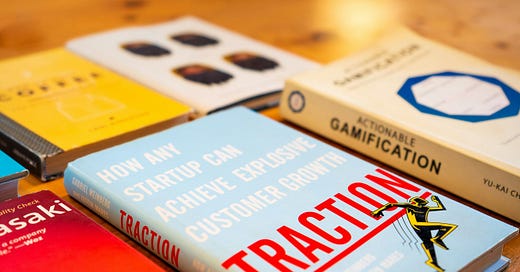Hey friends,
I found myself rereading Sam Altman’s Startup Playbook this week — probably for the first time in a couple of years.
And what hit me was how much of it only really makes sense after you’ve been through the hard parts.
You don’t really need more advice on startups. The internet is full of it.
But this playbook felt different because it’s honest in a way most public startup writing isn’t.
It’s short. Blunt. You could scroll past most of it in under 10 minutes. But you’d be missing the part that matters.
Basically, it’s what the content forces you to look at — especially if you’re still early, still forming, still in the in-between.
The first thing that stood out?
This line:
“The best companies often look bad at the beginning.”
It made me pause.
Because it’s easy to forget that.
Especially now, when everyone’s optimizing for the perfect story, the viral launch, the fundraise carousel.
But most of the best companies? They look weird at the beginning. They look messy. Quiet. Sometimes even boring.
And if you’re a founder in that stage — building something that feels invisible to everyone but your users — you might be closer to getting it right than you think.
That’s the subtext in a lot of what Sam writes.
Are you even supposed to look like a rocket ship in week six?!
Or are you supposed to be obsessively real about a problem most people overlook?
Then there’s the part about fundraising.
Nothing new in terms of headlines — you’ve heard it before.
Run a tight process. Parallel conversations. Get the first check fast. Don’t over-optimize terms.
But the real point he’s making is psychological.
“Don’t fall in love with the process.”
Because that’s the trap. You start tweaking your deck instead of your product. You spend more time talking to investors than to users.
You start optimizing for excitement instead of evidence.
And if you’re not careful, you start building a company that sounds good — but doesn’t actually feel good to run.
Sure, the raise is important. But be on the lookout for what the raise does to your time, your momentum, and your ability to stay close to the problem.
Fundraising is a long-term game but the real game is creating value for your customers.
Another line that stayed with me:
“Anything but a clear yes is a no.”
Founders are inherent optimists (hello?!).
We hear “maybe” and we think “eventually.” We hear “this is interesting” and we think “they’re in.”
But what Sam’s pointing out here — and what I’ve learned the hard way — is that in fundraising, ambiguity is inertia.
And inertia kills momentum.
The investors who get it, get it fast. And the rest? They might mean well, but they’re not coming back.
Your job is to find the one person who says “yes” without needing ten follow-ups.
That’s your anchor.
And the rest is noise.
But the part I keep thinking about — maybe the most powerful line in the whole playbook — is this one:
“Always have a backup plan that doesn’t involve raising money.”
It sounds like standard frugality advice. But I don’t think that’s what he meant.
I think what he’s saying is: your startup should still have a shape, even without capital.
There should still be a business in there. Still be customers. Still be some version of the work that keeps moving forward even if the funding falls through.
Because when you build from that place — from resilience instead of dependence — it changes how you carry yourself in every meeting.
You switch from pitching from fear to explaining from clarity.
And people feel that.
So no, I don’t think Sam’s playbook is full of secrets.
But it’s full of reminders.
Reminders that most good companies look small before they look smart.
That the only story that matters is the one your users believe.
And that raising money is a milestone — not a mandate.
If you’re in that early stage right now — somewhere between messy conviction and product-market fit — I’d recommend reading it slowly. Just to sit with it.
Because what it says quietly is what most startup advice doesn’t:
You don’t really need to be loud.
You just have to be right — and early.
And then you have to move like you mean it.
— RB
Startup Corner



